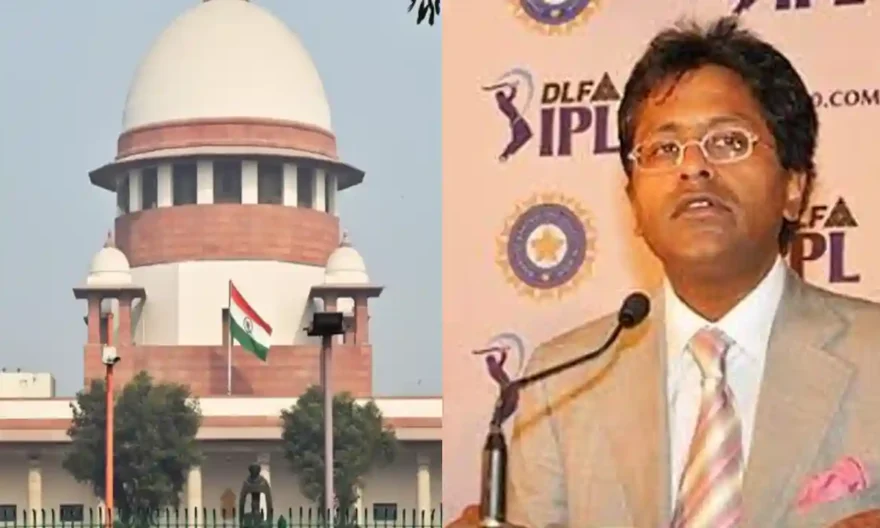
The Supreme Court has recently slammed ex-IPL commissioner Lalit Modi for comments he made about the judiciary in social media posts. The SC ordered him to tender an unconditional apology on social media sites and in national newspapers.
A bench of Justices MR Shah and CT Ravikumar warned that any repeat of such behaviour will be taken very harshly, noting that Modi is not above the law or the institution.
The Supreme Court also ordered him to file an affidavit before it, apologising and indicating that no such tweets will be made in the future, which would even remotely degrade the image of the Indian judiciary.
”We have seen the respondent’s (Modi’s) counter-affidavit. We are not happy with the explanation provided. We believe that even clarification would taint the judiciary’s image. Respondent A M Singhvi’s counsel claimed at the hearing that an unequivocal apology would be offered in all social media platforms where he has followers, as well as leading newspapers in Delhi, Mumbai, Bangalore, Madras, and Kolkata editions,” the court noted while listing the case for further hearing on April 24.
At the outset, senior attorney Ranjit Kumar, representing CU Singh, who filed the contempt petition, claimed that Modi had made a tweet on March 30, 2023 that harmed the reputation of the judiciary.
He made slanderous remarks against judges, and the apology is intended to evade punishment, according to Singh.
Singh claimed Modi has three million Twitter followers and four million Instagram followers and demanded that the former cricket administrator apologise on his social media sites.
As senior attorney AM Singhvi, who was representing Modi, began making his submissions, the Supreme Court made critical remarks about the former IPL owner.
”What does he mean by the statement that judges are in the pockets of so and so? Is he of the opinion that the judiciary is ineffective? Where is the court’s apology? You must first file an unconditional apology. Otherwise, you are despised. A public apology is required. I have faith in the Indian courts, he should add,” the bench stated.
“We don’t believe in an apology only on paper in the courtroom. If he makes such a declaration in public, the public must know that he has apologised. Everyone believes he would bring claims against the judiciary, which we will tolerate,” the Supreme Court stated.
Singhvi stated that he heard the court ”loud and clear” and assured the bench that his client will apologise.
The Supreme Court then stated, ”He may believe he can buy anything, but he is not above the law or the institution.”




